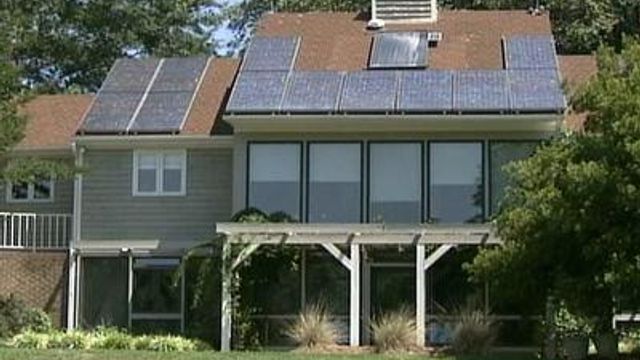Local News
State Lawmakers Consider Alternative Energy Bill
State lawmakers are ready to vote in favor of a measure that would require alternative energy to power homes and businesses.
Posted — UpdatedRALEIGH, N.C. — State lawmakers are ready to vote in favor of a measure that will change how energy is produced in the state by turning animal waste, the sun and wind, for example, into power.
"Wind, solar, water animal waste, poultry litter, swine waste -- (they're) all good sources of alternative energy," Sen. Charlie Albertson, D-Duplin, said. "We have a lot of bio mass. We've been referred to as the Saudi Arabia of bio mass in North Carolina, and we have a lot of it."
The Senate Committee on Agriculture, Environment and Natural Resources is working on a bill that would force major utilities to produce 12.5 percent of North Carolina's electricity from renewable, alternative energy by 2018.
The bill, which goes up for a committee vote next week, would limit the cost of households to $10 a year in 2008 and top out at $34 a year by 2015, according to a draft of the bill.
"It'll be good for the environment, good for consumers and will help us be less reliant on outside sources of energy," Albertson said.
At North Carolina State University, researchers are already studying alternative forms of energy at the Solar Center, the headquarters for its research. The entire building is run by solar panels on the roof.
The Solar Center is working with the state Senate.
"What we've got now, even before the bill passes, is an agreement with the utilities, the industrials, the major electricity users in the state and the environmental community that we want to move this ball forward," said Steve Kalland, executive director of the Solar Center.
A Progress Energy representative told WRAL that the company supports the Senate bill.
Most people hope renewable energy supports cheaper energy bills. Researchers say it is like DVDs or high-definition televisions -- when new technology comes out, it is expensive, but then, the cost declines.
Twenty-two states already use alternative resources.
Copyright 2024 by Capitol Broadcasting Company. All rights reserved. This material may not be published, broadcast, rewritten or redistributed.





